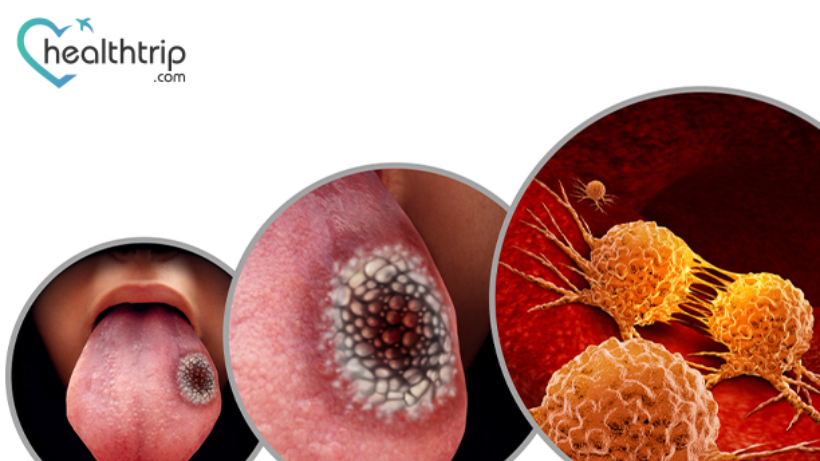
From Symptoms to Prevention, Here’s All You Need to Know About Oral Cancer
03 Aug, 2022
 Healthtrip Team
Healthtrip TeamOverview
Oral cancer is considered one of the most common cancers in India. Oral or mouth cancer can occur anywhere in the mouth, including the sides of the cheeks, lips, tongue, and gums. This can also affect the oropharynx, i.e., the last part of your tongue and the sides and back of your throat. Oral cancer can be fatal if left untreated. Here we’ve discussed mouth cancer symptoms that you need to know about. Keep on reading this blog to find out more about the same.
What are the signs and symptoms of oral cancer?
The following are the symptoms that can be caused by oral cancer or even by other cancers. The most common symptoms include:
Transform Your Beauty, Boost Your Confidence
Find the right cosmetic procedure for your needs.

We specialize in a wide range of cosmetic procedures

- Mouth pain that does not go away
- Lips, mouth, or cheek thickening or lump
- Non-healing sore in the lip
- A white or red patch that appears on the tonsil, tongue, gums, or mouth lining
- A sore throat or the sensation that something is stuck in your throat that won't go away
- Having difficulty chewing or swallowing
- Having difficulty moving the jaw or tongue
- Numbness of the tongue, lip, or other mouth areas
- A swollen or painful tongue
- Teeth loosening or pain around the teeth
- Voice alteration
- A mass or lump in the neck or the back of the throat
- Loss of weight
If any of the symptoms mentioned above persist for more than two weeks, seek medical attention. Consult your dentist immediately so the cause can be found and treated, if required.
Who gets oral cancer?
According to the WHO, oral cancer affects 20 per 1 lakh people in India, accounting for about 30% of all cancers. In India, around 77,000 new cases are reported annually.
How can you prevent the risk of developing mouth cancer?
As per our mouth cancer specialists, there is no proven method of preventing mouth cancer. However, if you do the following, you can lessen your risk of getting mouth cancer:
Stop using tobacco if you do. Don't start smoking if you don't already. Chewing or smoking tobacco exposes the cells in your mouth to chemicals that can cause cancer.
If you take alcohol, do so in moderation. Chronic excessive alcohol consumption can irritate the cells of your mouth making them vulnerable to mouth cancer. For healthy adults, no more than one drink per day is allowed. Women of all ages and men over the age of 65 should not have more than two drinks per day.
Also, Read - 10 Best Mouth Cancer Treatment Hospitals In India
Most popular procedures in
Total Hip Replacemen
Upto 80% off
90% Rated
Satisfactory

Total Hip Replacemen
Upto 80% off
90% Rated
Satisfactory

Breast Cancer Surger
Upto 80% off
90% Rated
Satisfactory

Total Knee Replaceme
Upto 80% off
90% Rated
Satisfactory

Total Knee Replaceme
Upto 80% off
90% Rated
Satisfactory

Avoid getting too much sun on your lips. Wear a hat with a wide brim that covers your entire face, including your mouth. Use a sunscreen lip product as part of your regular sun protection routine.
Regularly visiting your dentist can help you keep these symptoms at bay. During a routine dental exam, ask your dentist to look for any abnormalities that might point to mouth cancer or precancerous changes throughout your entire mouth.
How can we help with the treatment?
If you are in search of mouth cancer treatment in India, we will serve as your guide throughout the treatment. Our health trip advisors will be physically present with you even before the treatment begins. The following will be provided to you:
- Opinions of expert physicians and surgeons
- Transparent communication
- Coordinated care
- Prior appointment with specialists
- Assistance with hospital formalities
- 24*7 availability
- Arrangement for travel
- Assistance for accommodation and healthy recovery
- Assistance in emergencies
We are dedicated to offering the highest quality medical tourism to our patients. We have a team of highly qualified and devoted health trip advisors who will be by your side from the beginning of your journey.
Wellness Treatment
Give yourself the time to relax
Lowest Prices Guaranteed!

Lowest Prices Guaranteed!